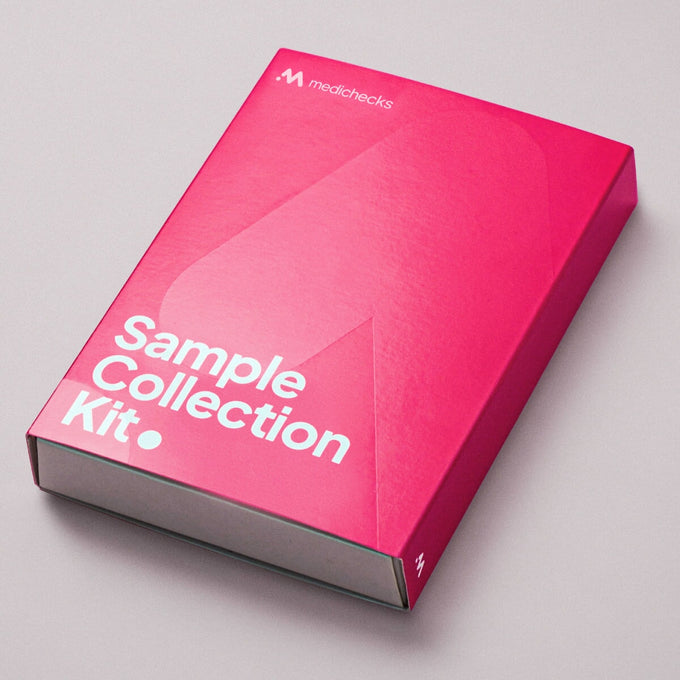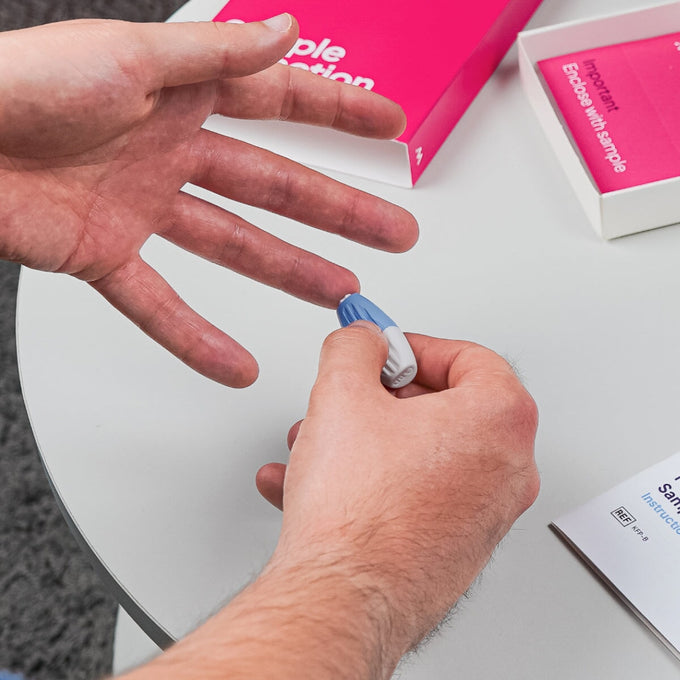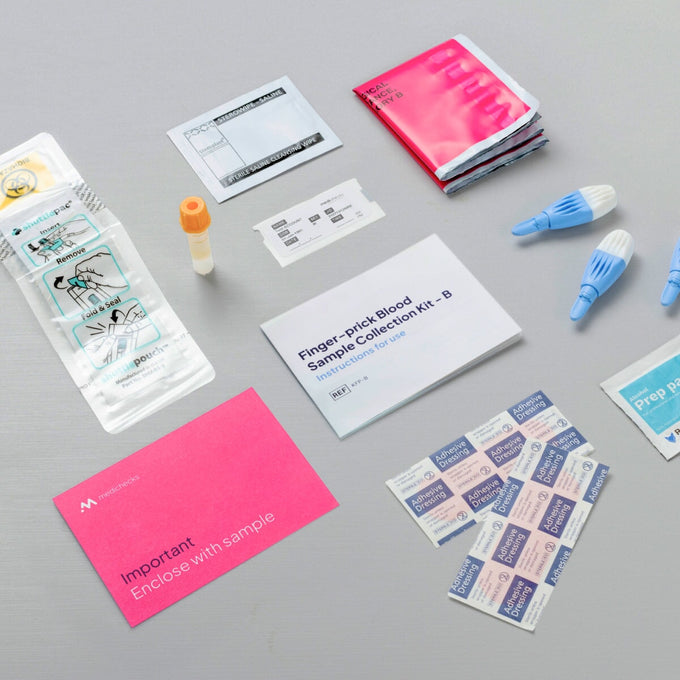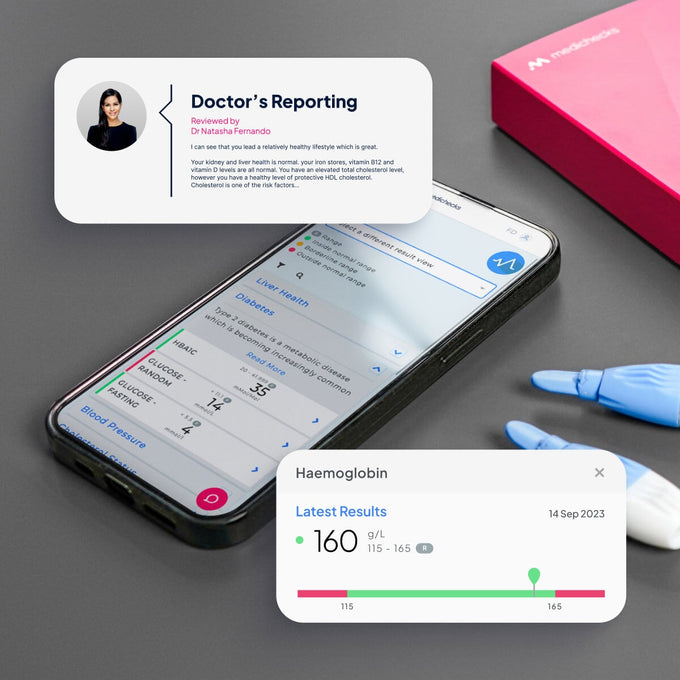Day 3 Fertility Blood Test, from our experts to you.
Dr Sam Rodgers MBBS, MRCGPChief Medical Officer

What is a fertility blood test?
Our day three fertility test is a helpful first test in an investigation into female infertility. Ideally, you should take our test three days after the start of your period, but it can also be taken on days two, four, or five of your menstrual cycle. This test aims to check that hormone levels can support the maturation and release of a healthy egg from the ovary.
What can I learn from this test?
Our test includes Follicle-stimulating hormone (FSH), luteinising hormone (LH), and oestradiol. FSH is released from a gland in your brain (the pituitary gland) to stimulate the ovary to start maturing an egg. LH is required for the final maturation and release of the egg from a follicle (a fluid-filled sac containing the egg), while the hormone oestradiol stimulates the growth of the follicle and prepares the womb lining for pregnancy.
The levels of hormones in your body on day three of your cycle can indicate whether hormonal problems are likely to affect ovulation and conception and whether a condition like polycystic ovaries may be affecting fertility.
What could affect my results?
Please note that any hormones you are taking for contraception or hormone replacement therapy (HRT) will influence your results. If you are looking for a true picture of your fertility status then please take this test at least 12 weeks after stopping any hormone replacement or contraceptive pill, implant or hormone IUD. It is recommended to wait until your periods have re-established a regular cycle (for you) before taking this test.
What's Included?
How to prepare for your test
Special Instructions
Prepare for your Day 3 Fertility Blood Test by following these instructions. Take this test two to five days after the start of your period, ideally on day three. It can be taken any time if you do not have periods. Hormonal contraception can affect this test, taking a break from this and using barrier contraception will give more accurate results. If you use hormone gels, pessaries, patches, or tablets, we strongly recommend selecting a venous sample to minimise contamination sometimes seen with finger-prick tests. Otherwise, administer any hormone supplements using gloves, and make sure your fingers have not been in contact with hormone supplements for at least four weeks before taking the test. Hormones can be absorbed deep within the skin even after minimal contact and remain there for weeks despite vigorous handwashing. Do not take biotin supplements for two days before this test, discuss this with your doctor if it is prescribed.





